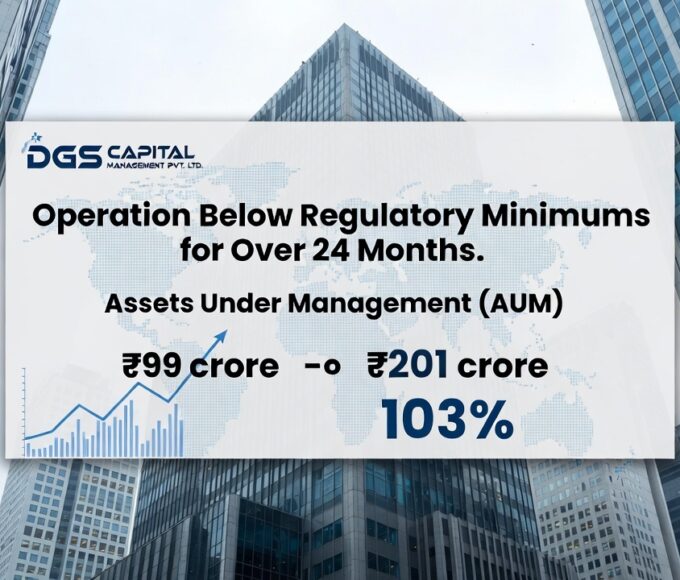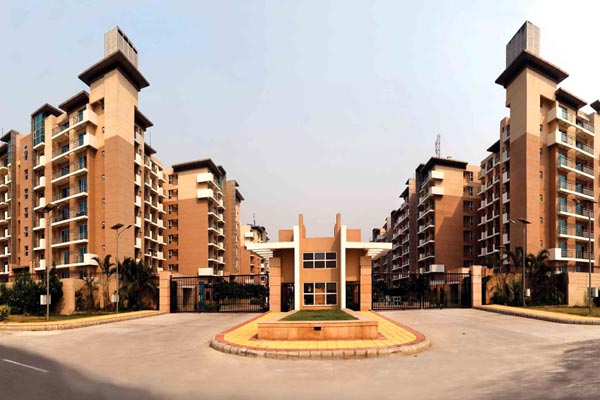IF Rahul Gandhi is to be believed, the role of the government is to maintain the rule of law, book the guilty and ensure equality before law. But when a petty criminal is caught stealing a loaf of bread, he is beaten black and blue and locked up in jail before being given a chance to explain, whereas Jignesh Shah is getting preferential treatment. This is one of those rare cases where the government is trying to recover money and intimidate others on behalf of the kingpin.
If you intend to commit a crime, do so on such a massive scale that you have enough booty left for yourself even after distributing some to all the needy and greedy. The whole idea is that you should comfortably enjoy the fruits of your crime and, whatever happens, neither the investors nor the guardians of the law should be able to touch your money which should continue to grow. You should continue to prosper under the patronage of high and mighty friends–partners in crime—who feel obliged to bail you out. These are among the most important lessons to be learnt from the Shah case.
On the face of it, the law finally seems to have caught up with Shah, Joseph Massey and Shrikant Javalgekar, who were found “unfit and improper” to hold board or managerial positions in a recognised commodity exchange. In a strongly worded order, commodity markets regulator Forward Markets Commission (FMC) barred Shah and two of his aides from holding more than 2 per cent stake individually or through others in any recognised commodity exchange. Shah’s properties, including his Juhu bungalow, a house worth Rs. 78 lakh in Aarey Colony and a residential plot in Pune, were attached by the Economic Offences Wing (EOW) of Mumbai Police. He had to step down from the board of directors of Multi Commodity Exchange of India and MCX SX—the very companies he founded. But is this fit and proper punishment for a man who has been described as the “head and brain” as well as the “highest beneficiary of the fraud”?
Not when you consider that Rs. 5,600 crore deceitfully swindled from some 13,000 investors is lying untraced while the settlement guarantee fund– a corpus created for investor protection—has mysteriously vanished. Till such time this money is recovered, any talk of allowing Shah to retain Rs. 931 crore recovered from the sale of Singapore Mercantile Exchange (SMX), or the differential amount recovered from downsizing the equity to 2 per cent, would amount to allowing him to benefit from his own crime. How can such a company be notified as a “recognised stock exchange” under Section 2(39) of the Companies Act? The FMC order makes it clear that all this was done with “mala fide intention on part of the promoter of the FTIL to use the trading platform of its subsidiary company for illicit gains, away from the eyes of the regulator”.
Still, instead of being punished, FTIL is being deliberately allowed to sell 100 per cent of its equity ownership in Singapore Mercantile Exchange Pte Ltd (together with its wholly-owned subsidiary, Singapore Mercantile Exchange Clearing Corporation Pte Ltd) to ICE Singapore Holdings Pte Ltd for US$150 million. FTIL is also selling total stake in the National Bulk Handling Corp—FTIL’s warehousing, which, in turn, holds a 60.88 per cent stake in IBMA—and remitting these funds to offshore subsidiaries. If this is allowed, the real money will get parked overseas, out of the reach of NSEL investors who will be left holding the stump. FTIL has reportedly remitted over US$90 million (about Rs. 560 crore) to its offshore SPVs on the pretext of prepaying offshore loans, over the past few months.
SINCE August 2013, when this fraud came to light, FTIL has remitted US$90 million as loan to FT Group Investments Pvt Ltd (FTGIPL), a wholly-owned subsidiary, to prepay an unsecured foreign currency loan availed of by FTGIPL, purportedly for meeting its working capital requirements of overseas exchange ventures. Of this, FTGIPL prepaid US$42 million towards the foreign currency loan and US$44 million was sent back by FTIL. This was utilised to prepay External Commercial Borrowings worth US$33.25 million on September 19, 2013.
Similarly, there are apprehensions that FTIL might wish to siphon off funds recovered from sale of its 100 per cent shares in the Bahrain Financial Exchange, 100 per cent in FT Group Investments Pvt Ltd in Mauritius, 99.98 per cent in Bourse Africa Pte Ltd, 100 per cent in Knowledge Assets Pvt Ltd, Mauritius, 100 per cent in the Global Board of Trade Ltd, GBOT Clear Ltd, Mauritius, Singapore Mercantile Exchange Ltd and several other stock exchanges.
Such foreign currency transactions without the permission of the Reserve Bank of India are illegal and seriously compromise the interests of FTIL’s 75,400 shareholders.
Jignesh Shah had to step down from the board of directors of the very companies he founded. He cannot anymore sit on the board and manage the affairs of any commodity derivatives exchange and is legally mandated to downsize his shareholdings to 2 per cent. But is all this a fit and proper punishment for the man who has been described as the “head and brain” as well as the “highest beneficiary of the fraud”?
Innocent victim or cunning plotter
One of the significant aspects of the FTIL order is the manner in which it has peeled off Shah’s outer veneer as the innocent victim who did not know any thing of what his employees and senior management were up to. The man has been exposed as the person who engaged the services of his maternal uncle, Mukesh Shah, as the statutory auditor of NSEL, to cover his tracks. “It appears that Jignesh Shah has got himself excluded from the list of key management personnel, ostensibly to distance himself from NSEL when continuous defaults by members had thrown the company completely out of gear,” the FMC order says.
“Shah, as the promoter of FTIL and NSEL, has misused his position to create confidence in the minds of the participants regarding the legitimacy of the business and its operations in the exchange platform of NSEL,” the order states.

THIS demolishes NSEL’s former CEO, Anjani Sinha’s claim in his first affidavit that the promoters were no way involved, but substantiates his second affidavit in which he said that he was blackmailed into giving a clean chit to the promoters. This is also what another NSEL employee, Amit Mukherjee, claimed.
With regard to Shrikant Javalgekar, former MD and CEO of MCX and board member of NSEL and Indian Bullion Markets Association (IBMA), the order says, “Such association by the MD of a regulated exchange with group entities of FTIL, which also participated in the trading platform of the same regulated entity of which he was the MD, displays a lack of honesty and integrity of the individual.”
Commenting on Joseph Massey’s role, FMC states, “His conduct through the series of events that led to the settlement crisis at NSEL has certainly eroded his general reputation, record of fairness, honesty and integrity…”
“Shah, as the promoter of FTIL and NSEL, has misused his position to create confidence in the minds of participants regarding the legitimacy of the business and its operations in the exchange platform of NSEL,” the FMC order states.
Significantly, even the Registrar of Companies (RoC), in its 69-page report, opined, “The directors of FTIL have failed in their fiduciary duty to safeguard the interests of shareholders and creditors by not exercising due diligence and prudence in respect of its subsidiary (NSEL) and should not continue as directors of FTIL and NSEL.” Prime facie, it appears that the FTIL board allowed the state of affairs at NSEL to continue, which resulted in the fraud. Some of the violations are so serious that they can lead to their imprisonment under the Companies Act, the report adds.
Highest beneficiary of NSEL scam
Isn’t it surprising that, while officials like Amit Mukerjee and Anjani Sinha are now cooling their heels in a Mumbai jail, mastermind Shah is out of it? The government, on its part, claims to have done its bit by ordering the commodity spot exchange to stop trading for violating trading rules.
For a change, the far-reaching FMC order goes on to call a spade a spade. “It can be logically concluded that behind the corporate veil, the management and governance of NSEL was practically carried out by Jignesh Shah through the vehicle of FTIL.”
This is not the end of the story as more trouble seems to be heading Shah’s way and soon he might have to vacate the chair on the board of India’s largest electricity exchange— Indian Electricity Exchange (IEX)— offering a platform to more than 2,600 participants to sell and purchase electricity. The five-year-old IEX commands a 95 per cent share in the market. The Central Electricity Regulatory Commission (CERC), led by its chairman, Girish Pradhan, is challenging Shah’s right to remain on the IEX board.
The ball is now in the court of IEX, chaired by former FMC chairman and Maharashtra Electricity Regulatory Commission member Venkat Chary. Two IAS officers, KT Chacko and Asha Das, as independent directors will also have a say. Besides Shah, Paras Ajmera is also on the IEX board. As of today, FTIL controls one-third of IEX shares. But once the CERC guidelines are implemented, Shah’s state and control over the IEX too will get diluted.
















































